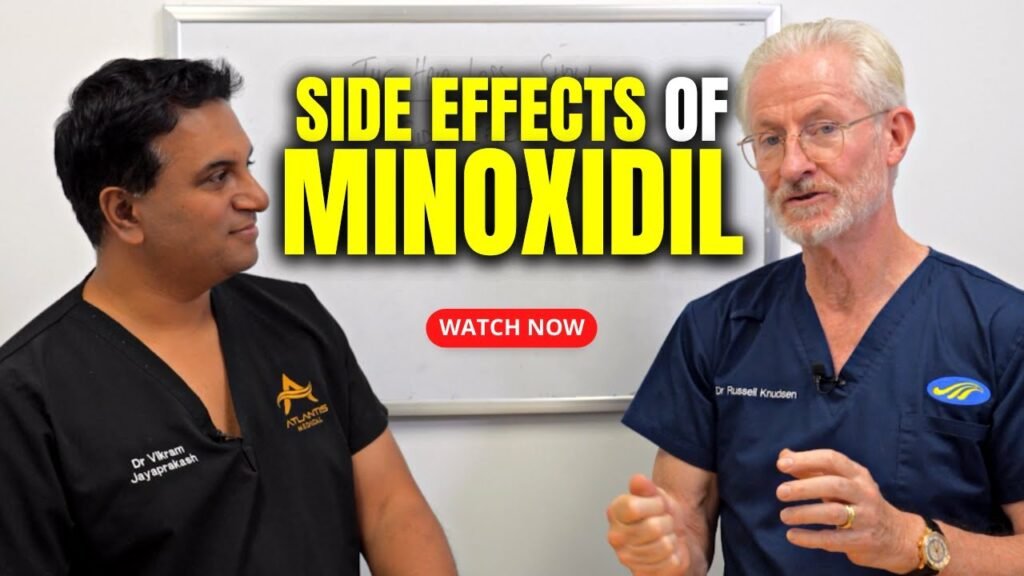Understanding Dizziness as a Side Effect of Minoxidil
Minoxidil, a popular medication used for treating hair loss, is generally well-tolerated, but some users may experience side effects, including dizziness. This sensation can be unsettling and may vary in intensity from mild to severe. Understanding why dizziness occurs with Minoxidil can help users manage this side effect effectively. The underlying cause of dizziness when using Minoxidil is often linked to its role as a vasodilator, which means it works by widening blood vessels. This can lead to a temporary drop in blood pressure, resulting in dizziness, especially when standing up quickly.
Why Does Minoxidil Cause Dizziness?
The primary reason Minoxidil can cause dizziness is its impact on blood circulation. As a vasodilator, Minoxidil increases blood flow by relaxing and expanding blood vessels. While this action is beneficial for stimulating hair follicles and promoting hair growth, it can inadvertently lower blood pressure. When blood pressure decreases, less blood reaches the brain momentarily, leading to feelings of lightheadedness or dizziness. This side effect is more likely to occur when the medication is first started or if the dosage is increased. Users should be mindful of these potential changes and monitor their bodys reactions when using Minoxidil.
Managing Dizziness When Using Minoxidil
For those experiencing dizziness as a side effect of Minoxidil, there are strategies to help mitigate this issue. First, it is essential to use Minoxidil as directed by a healthcare provider, avoiding any unnecessary increases in dosage. Additionally, users should be cautious when moving from a lying or sitting position to standing, as this can exacerbate dizziness. Staying hydrated and maintaining a balanced diet can also support overall vascular health and potentially reduce dizziness. If dizziness persists or worsens, it is crucial to consult with a healthcare professional to discuss alternative treatments or adjustments to the medication regimen.
Common Symptoms Accompanying Dizziness from Minoxidil
Minoxidil, a well-known treatment for hair loss, can sometimes lead to dizziness as a side effect. This sensation might be accompanied by a variety of other symptoms that users should be aware of. Understanding these can help in managing the side effects more effectively and knowing when to seek medical advice.
One of the most frequently reported symptoms accompanying dizziness from Minoxidil is lightheadedness. This can occur when standing up quickly or after taking the medication, and it might make individuals feel as though they are about to faint. Alongside lightheadedness, some users may experience headaches, which can vary in intensity from mild to severe and often exacerbate the feeling of dizziness.
In addition to lightheadedness and headaches, nausea is another common symptom that may occur with dizziness when using Minoxidil. This unsettling feeling in the stomach can sometimes lead to vomiting, making it important for users to monitor their condition closely. Furthermore, some individuals might also experience fatigue or a general sense of weakness, which can compound the discomfort caused by dizziness and make daily activities more challenging.
If dizziness and these accompanying symptoms persist or worsen, it is crucial to consult a healthcare professional. They can assess whether the symptoms are related to Minoxidil use or if another underlying condition might be present.
Why Minoxidil Causes Dizziness: An In-depth Analysis
Minoxidil, a well-known medication for treating hair loss, is often associated with an unexpected side effect: dizziness. This sensation can be alarming for users, prompting questions about the underlying causes. The primary reason minoxidil can lead to dizziness is its role as a vasodilator. Originally developed to treat high blood pressure, minoxidil works by relaxing blood vessels, allowing blood to flow more easily. While this is beneficial for hypertensive patients, it can inadvertently lower blood pressure in individuals using it for hair regrowth, leading to dizziness, especially when changing positions quickly, such as standing up from a sitting or lying position.
Systemic Absorption and Its Effects
The topical application of minoxidil is generally considered safe, with minimal systemic absorption. However, in some cases, especially when applied in higher concentrations or over large areas, a more significant amount can enter the bloodstream. This increased absorption can enhance the drugs vasodilatory effects, further lowering blood pressure and resulting in dizziness. Its crucial for users to follow the recommended dosage and application instructions to minimize these effects. Individuals with a predisposition to low blood pressure or those taking other medications affecting blood pressure should exercise additional caution.
Individual Variability and Contributing Factors
Several factors contribute to why some individuals experience dizziness with minoxidil while others do not. Individual variability in drug metabolism, pre-existing health conditions, and concurrent medication use can all play a role. For instance, people with a history of cardiovascular issues or those on antihypertensive medications may be more susceptible to dizziness. Moreover, lifestyle factors such as dehydration, alcohol consumption, and overall physical health can exacerbate this side effect. Monitoring ones response to minoxidil and consulting with healthcare professionals can help manage and mitigate the risk of dizziness.
How to Manage and Mitigate Dizziness Caused by Minoxidil
Experiencing dizziness as a side effect of using Minoxidil can be unsettling, but there are several strategies you can employ to manage and mitigate these symptoms effectively. Firstly, its essential to consult with your healthcare provider. They can confirm whether Minoxidil is the cause of your dizziness and may suggest adjusting your dosage or switching to an alternative treatment. Never alter your medication regimen without professional guidance, as improper use can exacerbate side effects or reduce the effectiveness of the treatment.
Implement Lifestyle Changes
Incorporating certain lifestyle changes can also help in reducing dizziness. Ensure you are staying well-hydrated and maintaining a balanced diet, as dehydration and poor nutrition can worsen dizziness. Regular exercise, particularly activities that improve balance and coordination, can also be beneficial. However, always proceed with caution and consult your doctor before starting any new exercise program, especially if youre experiencing frequent dizziness.
Monitor Your Symptoms
Keeping a symptom diary can be incredibly useful in managing dizziness associated with Minoxidil. Record the frequency, duration, and severity of your dizziness episodes, as well as any potential triggers. This information can be invaluable to your healthcare provider in tailoring a treatment plan that best suits your needs. Additionally, practice slow positional changes, such as getting up slowly from a sitting or lying position, to prevent sudden drops in blood pressure that could lead to dizziness. By taking these proactive steps, you can better manage the dizziness and continue your Minoxidil treatment with minimal disruption.
When to Seek Medical Attention for Dizziness from Minoxidil
Experiencing dizziness after using Minoxidil can be a common side effect, but its crucial to know when this symptom warrants medical attention. Minoxidil, a popular treatment for hair loss, can occasionally lead to dizziness due to its effects on blood pressure. While mild dizziness might be manageable at home, certain scenarios necessitate a consultation with a healthcare professional.
Persistent or Severe Dizziness
If you experience dizziness that is persistent or severe, it is essential to seek medical attention promptly. Severe dizziness can indicate that Minoxidil is affecting your cardiovascular system more significantly than expected, potentially leading to a dangerous drop in blood pressure. Persistent symptoms that do not subside after discontinuing use also warrant a visit to your doctor, as they may suggest an underlying condition that requires further investigation.
Accompanying Symptoms
Dizziness accompanied by other symptoms such as chest pain, shortness of breath, or fainting should be treated as an emergency. These symptoms can signify a serious cardiovascular issue or an adverse reaction to Minoxidil. Immediate medical intervention is crucial in these cases to prevent potential complications. Additionally, if dizziness is accompanied by severe headaches or vision changes, it is important to consult with a healthcare provider to rule out neurological concerns.


